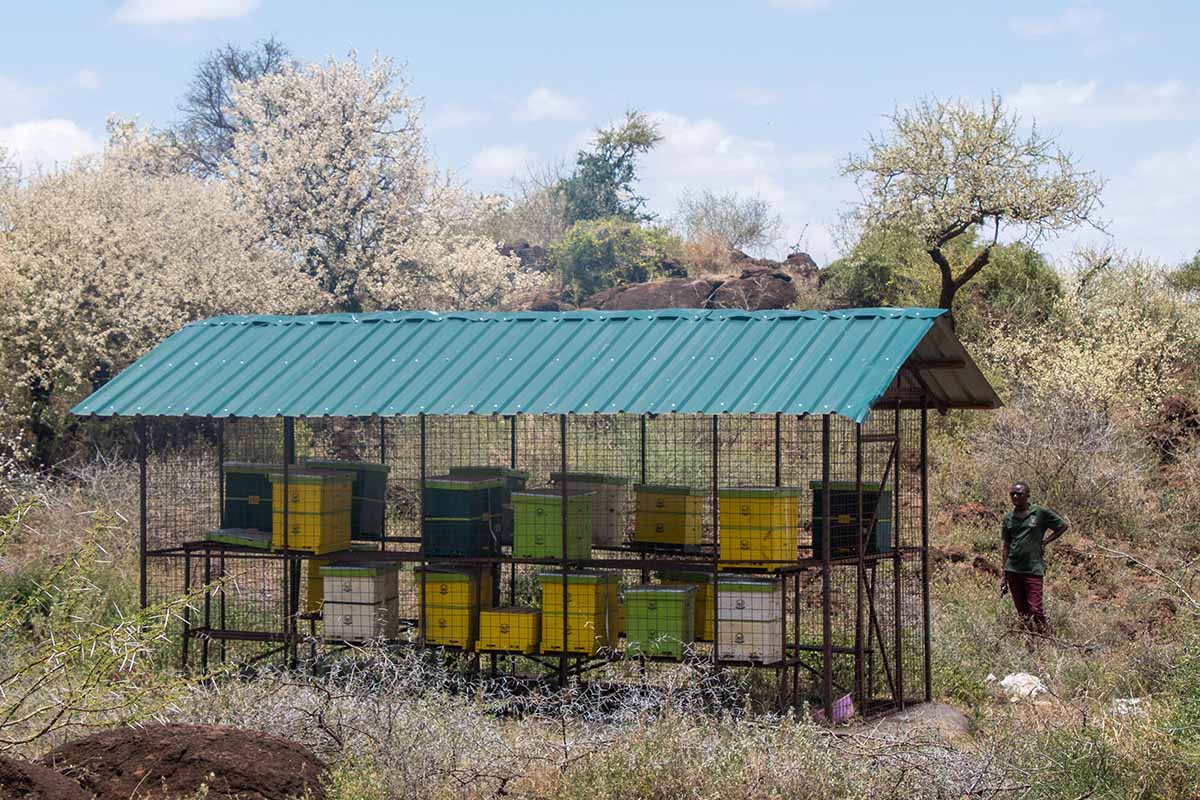 Big Life and Saving the Wild’s honey was a huge hit with everyone who was lucky enough to get their hands on a jar when it was harvested earlier this summer. It sold out within weeks, and demand has been high for more. But the long rains failed, so a second harvest was postponed, and has since proved to be the right call. Even the world’s hardest and tiniest workers need time to rest and recover. And the abundant acacia blooms of last March feel a world away from today's desolate landscape.
Big Life and Saving the Wild’s honey was a huge hit with everyone who was lucky enough to get their hands on a jar when it was harvested earlier this summer. It sold out within weeks, and demand has been high for more. But the long rains failed, so a second harvest was postponed, and has since proved to be the right call. Even the world’s hardest and tiniest workers need time to rest and recover. And the abundant acacia blooms of last March feel a world away from today's desolate landscape.
Honey is a bee’s insurance policy in times like this. A recent hive inspection showed that many of our bee colonies are strong and have yet to lean into their honey stores. But there are also some weaker colonies in need of an extra boost, so we have provided each apiary with the next best thing to pollen: sugar water.
Hopefully this means that by time the rains return later this fall, we won't have lost any colonies, and can put our efforts back into harvesting more of delicious honey, the sales of which will contribute directly towards scholarships for girls living in the Amboseli ecosystem. These scholarships could well be given to children who were able to attend school because of the emergency school lunches we were able to provide through this drought period, so it makes it even more important that these little striped superstars are also given a helping hand.
This project would not have happened without the support from our partners Saving the Wild and Comvita, who we are collaborating with to help save the wild lands of Amboseli, bridge inequality, and create a chance for more children to achieve an education. All of which is made possible because of our brilliant bees.
Not a bad achievement for a swarm of industrious insects, whom we honor today for Honey Bee Day.
Photo: Josh Clay
